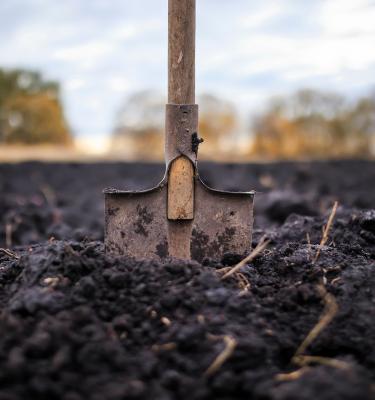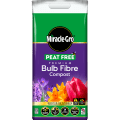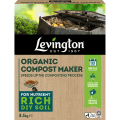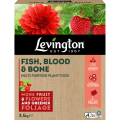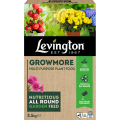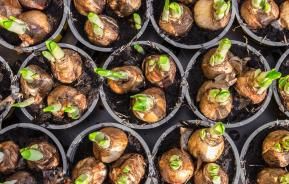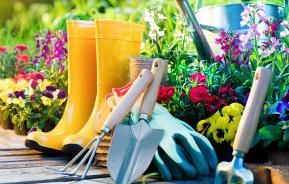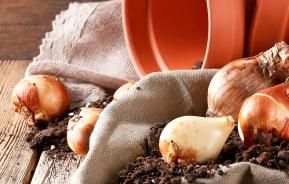There are different types of soil which are determined by the most abundant type of particles in it, and you can test it by simply squeezing it between your fingers.
Clay soil is sticky and heavy when wet and in your hand, you can roll it into a ball shape. When a garden is made up from clay soil, there may be some drainage problems but adding soil conditioner will improve the poor soil structure by helping excess moisture to drain away, so the roots can grow healthily.

If the soil is dry, gritty and doesn’t stick together there is a higher concentration of sand, so water and essential nutrients drain away quickly. Adding plenty of organic material to sandy soils will work wonders to develop the mix to ensure it retains moisture and is easier to handle.
Chalky soils tend to be alkaline, stoney and low in nutrients so they need plenty of fertiliser and organic matter such as leaf mould or well-rotted manure which will release nutrients to improve the soil. However, for very chalky soils your best bet is to choose plants that thrive in high alkaline conditions such as Campanula latifolia (broad-leaved bellflower) with nodding bell-shaped violet flowers that thrive in those environments.
Loam soil is a gardener’s best friend – it’s just the right balance of materials and feels smooth, and when made into a ball, it crumbles easily. You won’t need to do much to this soil to ‘fix’ it, but adding organic matter won’t harm, and it’ll keep nutrient levels up.
Planting prep
Autumn is an ideal time for improving your soil, especially for barren borders and veg patches that are settling down after a busy growing period. To get the soil ready for planting, it’s key to prepare the space to free it from weeds and debris, whilst also breaking up the soil structure to help your plants grow their best.
Using this time to get some good organic material into the soil is ideal. Homemade compost straight from your compost heap is a great choice, and the composting process can be sped up using a compost maker, as it stimulates bacteria growth from it’s nitrogen rich content.
Alternatively, adding manure will help to provide an organic environment for the plants to grow in. This product can be used all year round but is best applied to veg patches in spring before sowing and planting as well as during winter digging for heavier soils.
Many organic fertilisers and soil improvers like fish, blood and bone are slow-release and long-lasting feeds, so they can be applied in the autumn months to give the soil a good start for the next growing season in spring. This is applied by evenly sprinkling the pellets over the soil and mixing in well.
Bring on the borders
Get your borders ready to burst with blooms by prepping the area by digging in soil conditioner, which is an easy to spread blend of organic nutrients that enriches poor soil and increases yields of fruits and flowers. Not only does it improve moisture retention and drainage, but it can also be used as a method of weed prevention. By adding a 5cm thick application of the soil improver to beds or containers it can aid suppression of weeds.
Some brilliant bulbs to plant in autumn are daffodils, tulips and crocuses that will be sure to brighten up your beds and borders in the new year, signalling the new season of growth. Daffodil ‘February Gold’ is a great pick with cheery golden-yellow flowers, growing up to 30cm in height, whilst tulip ‘Aladdin’ will bring some dramatic fiery colour in late spring. Easy to plant and incredibly rewarding to watch grow, bulbs prefer a well-drained soil as too much water can cause the bulb to rot.

Choosing plants that will thrive in your natural soil type is the best way of guaranteeing growth and having a flourishing garden, no matter what soil type you have. However, introducing plenty of organic matter to your soil, whether that’s homemade compost, farmyard manure or other soil improvers, will have a great impact on your garden. Your soil will appreciate the improvement in soil structure and its access to the vital nutrients to pass on to your prized plants.
